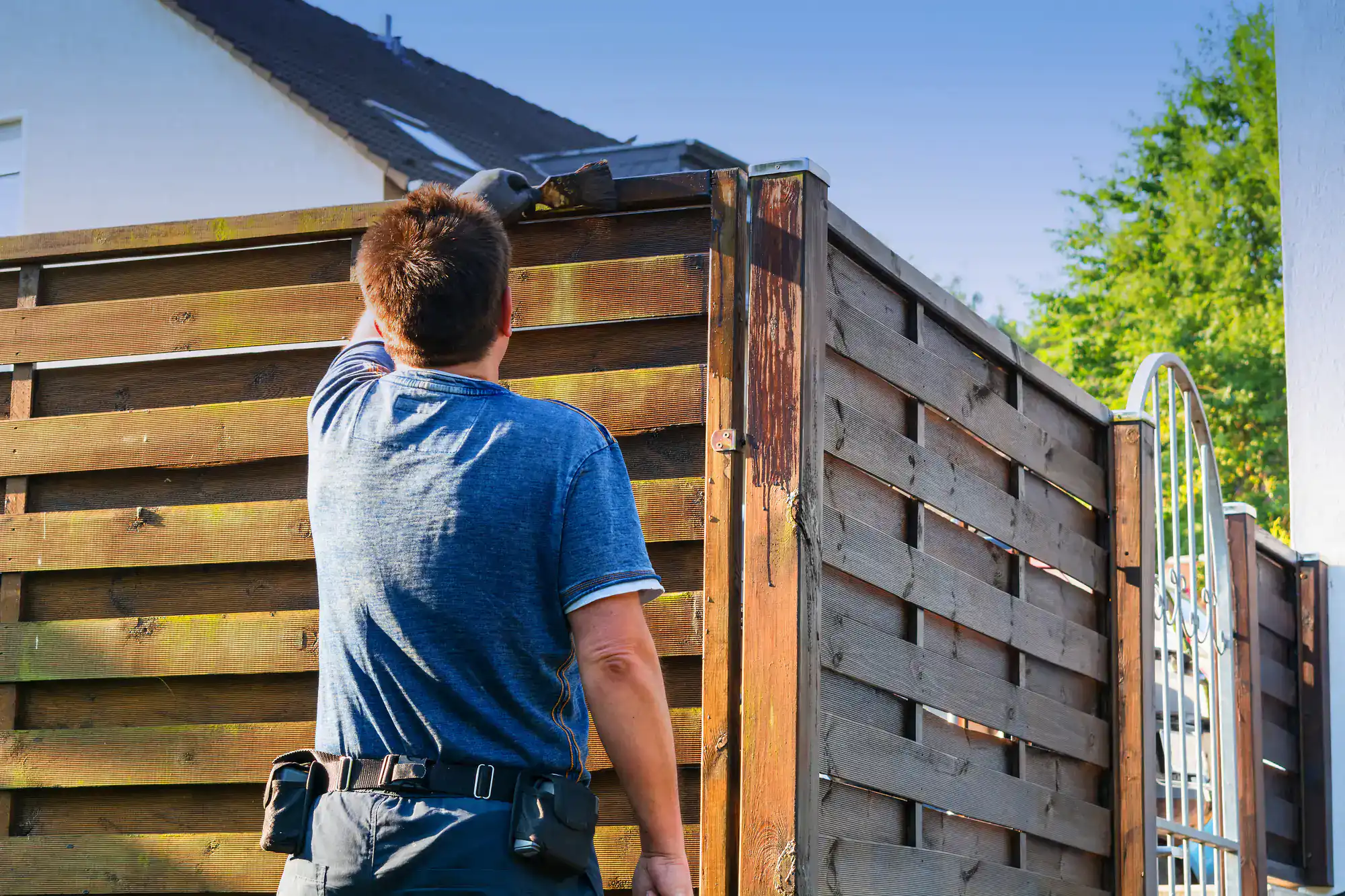
Hear from Our Customers
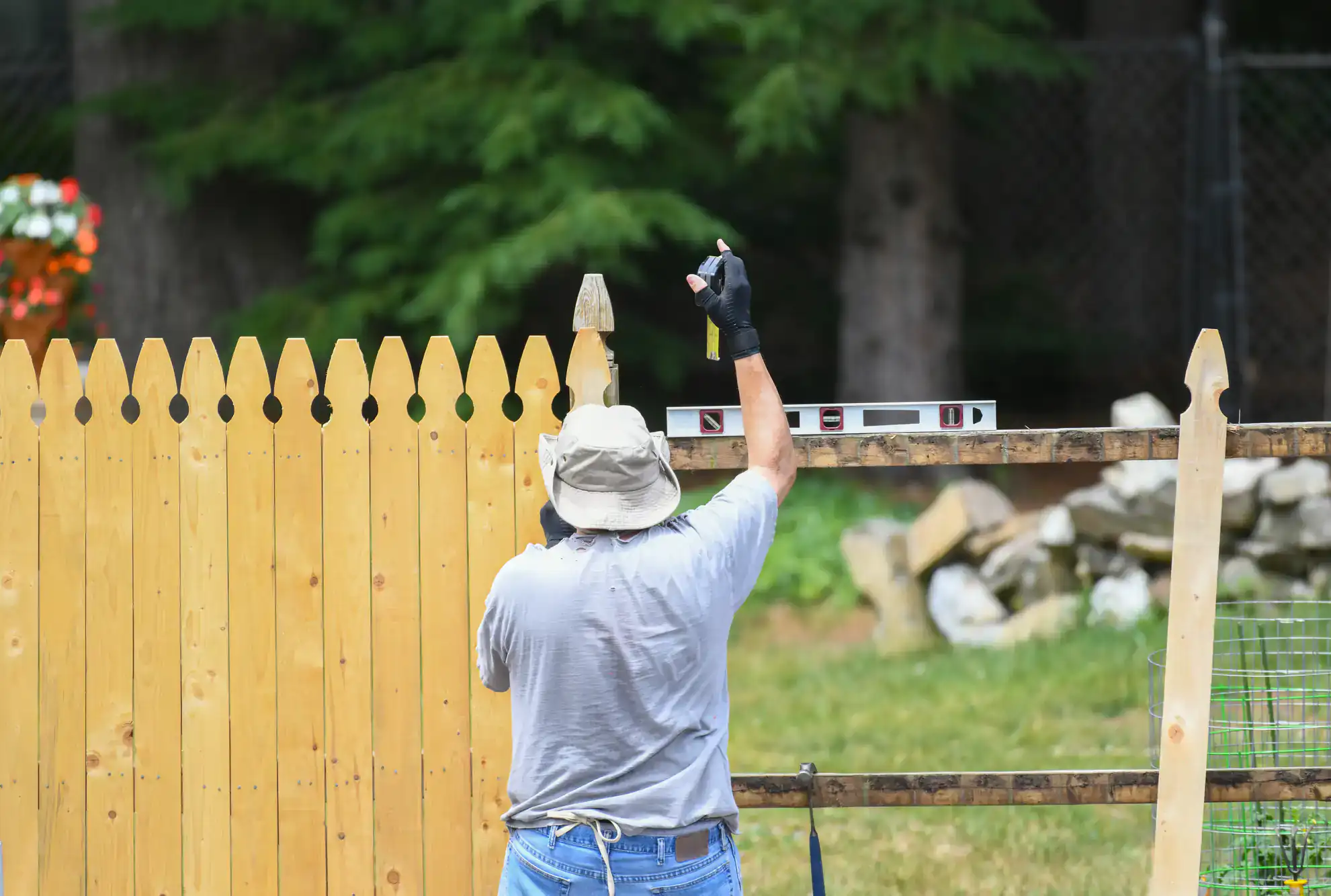
You know what good fencing does. It stops the neighbor’s dog from using your garden as a bathroom. It keeps your kids safe in the yard without you watching every second. It gives you actual privacy when you’re having coffee on the deck.
But here’s what great fencing does: it makes your property look intentional. Like someone who cares lives there. It handles Shelter Island’s salt air and winter storms without falling apart in two years. It adds real value when you’re ready to sell.
That’s the difference between a fence that works and a fence that works for you. We install the second kind.
Expressway Roofing and Chimney Inc has been handling residential projects across Long Island for years. We understand what coastal properties need: materials that don’t buckle under salt air, installation that accounts for sandy soil, and contractors who actually show up when they say they will.
Dering Harbor properties have specific challenges. Narrow access roads, established landscaping that needs protection, and neighbors who notice everything. We’ve worked through all of it before.
You’re not our learning experience. You’re getting expertise that comes from understanding what works on Shelter Island and what doesn’t.
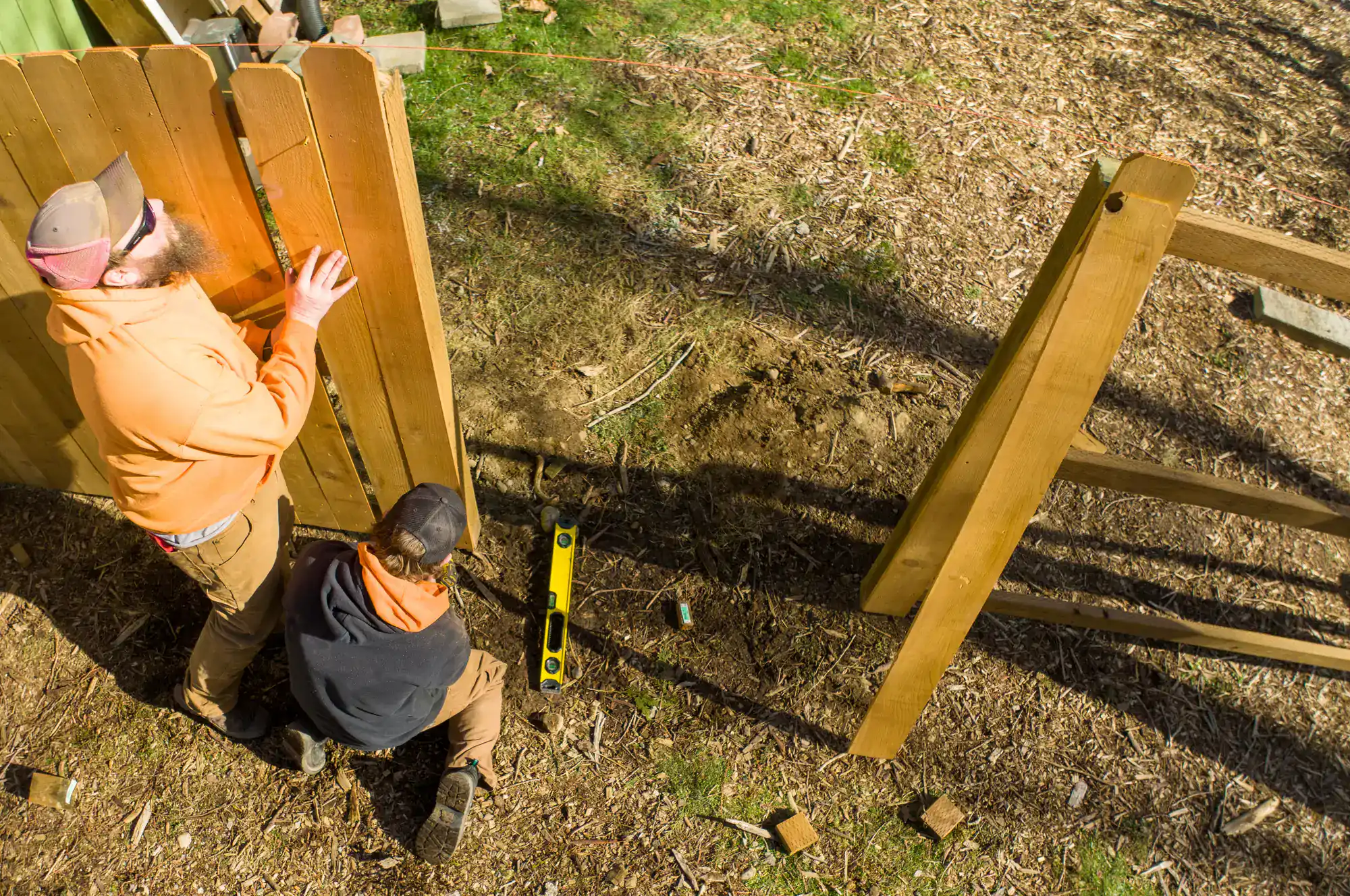
First, we walk your property lines with you. We measure, check for utilities, and talk through exactly where everything goes. No guessing, no “we’ll figure it out later.”
Then we handle permits if needed and order your materials. We schedule installation around your life, not ours. Most residential fencing projects take 2-3 days, weather permitting.
Installation means proper post spacing, level runs, and gates that actually swing the way they should. We clean up completely when we’re done. Your property looks better than when we started, just with the fence you wanted.
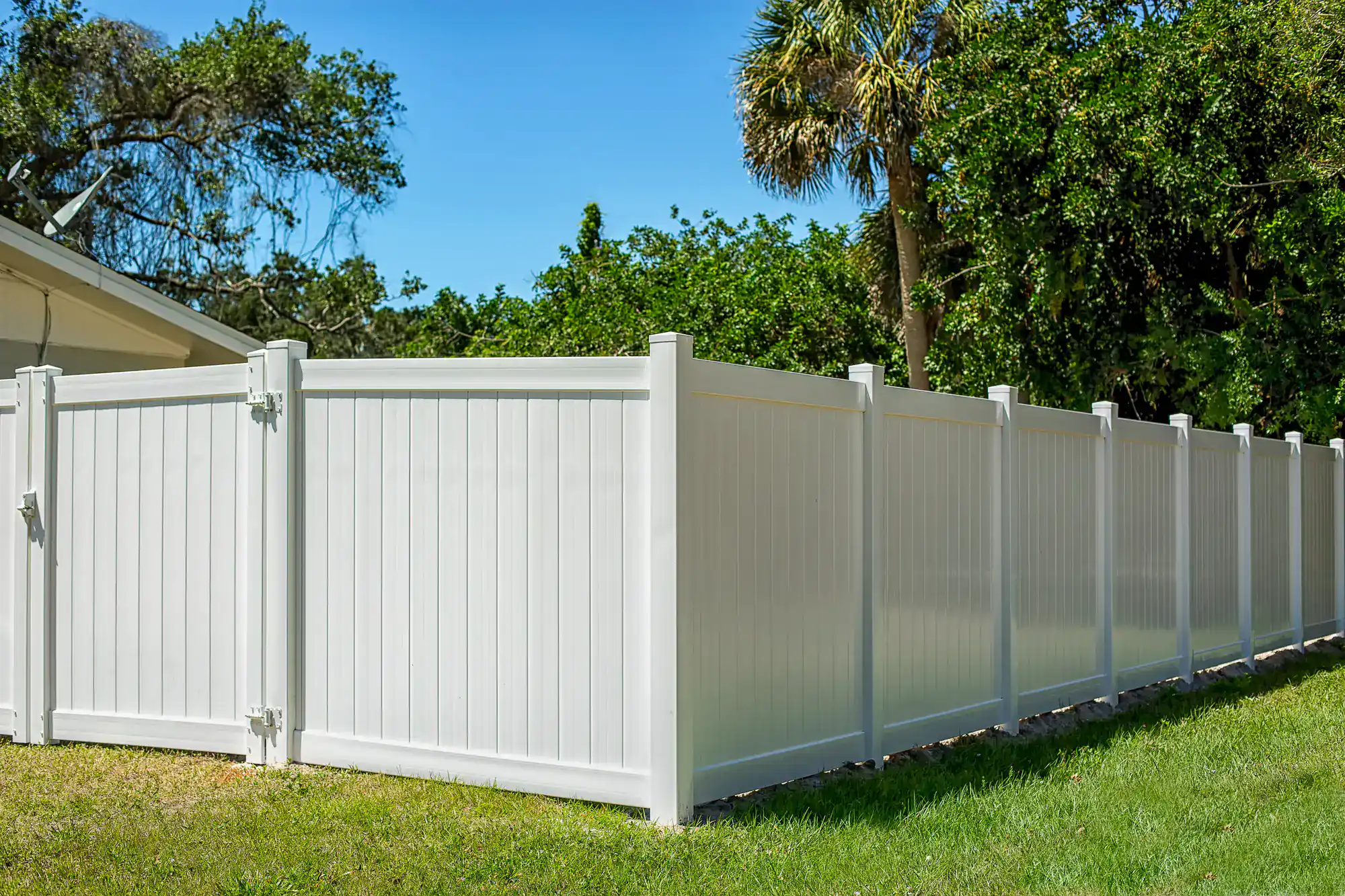
Ready to get started?
Vinyl fencing works well here because salt air doesn’t affect it. No painting, no staining, no rotting. It looks the same in year five as it did on installation day. Good for privacy, property lines, and pool areas.
Wood fencing gives you that classic look, but it needs the right treatment for coastal conditions. We use pressure-treated lumber and proper staining that actually protects against moisture and salt. Cedar works particularly well on Shelter Island.
Aluminum fencing handles the weather without maintenance and works great for decorative applications or when you want security without blocking views. Chain link is practical for larger areas or when you need something strong and affordable.
Each material has its place. We’ll tell you honestly what works best for your specific situation and budget.
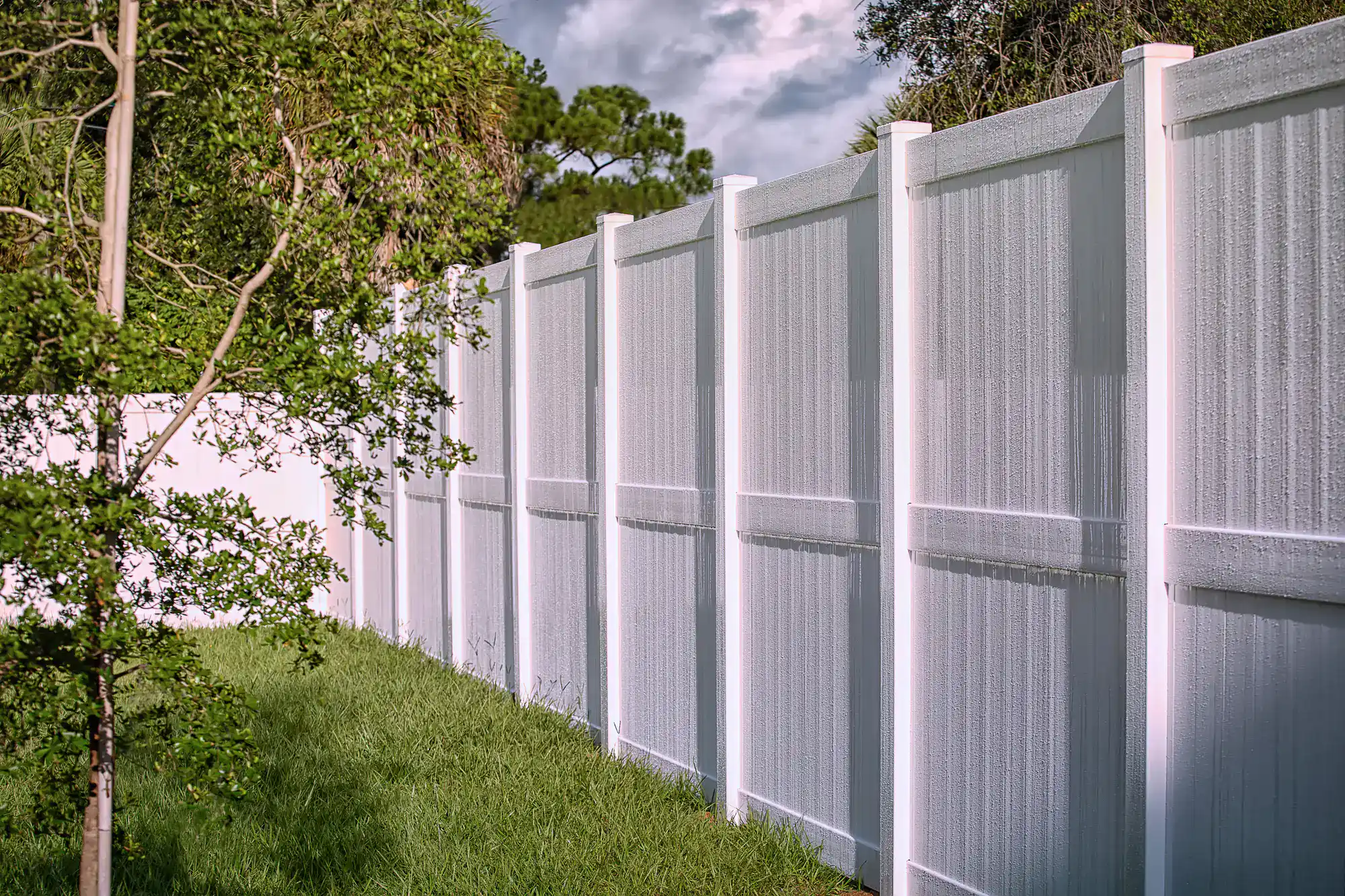
Quality vinyl fencing typically lasts 20-30 years in coastal environments like Dering Harbor. The salt air that destroys wood and rusts metal doesn’t affect vinyl at all. It won’t fade, crack, or become brittle under normal conditions.
The key is proper installation. Posts need to be set deep enough to handle wind loads, and the fencing needs room for thermal expansion. Cheap vinyl will become brittle and crack within a few years, but commercial-grade vinyl maintains its flexibility and appearance for decades.
We use heavy-duty vinyl with UV inhibitors specifically designed for coastal applications. It costs more upfront but eliminates the ongoing maintenance costs you’d have with wood or metal fencing.
Most residential fencing in Dering Harbor requires a building permit, especially if the fence is over 6 feet tall or within setback areas. Suffolk County has specific requirements for fence height, materials, and placement relative to property lines.
You’ll also need a survey to confirm exact property boundaries before installation. Many property line disputes happen because homeowners assume they know where their boundaries are. A current survey prevents problems with neighbors and ensures permit approval.
We handle the permit application process and can recommend surveyors who work regularly on Shelter Island. The permit process typically takes 2-3 weeks, so we start early to avoid delays in your installation schedule.
Sandy soil requires different installation techniques than clay or rocky soil. We typically dig post holes 6-8 inches wider than the post and go deeper than standard installations to account for the loose soil conditions.
For vinyl and aluminum fencing, we use concrete footings that extend below the frost line. The concrete needs time to cure properly in sandy conditions, so we usually set posts one day and install fencing panels the next day.
Wood fence posts get treated lumber rated for ground contact, plus we use gravel at the bottom of each hole for drainage. This prevents water from pooling around the post base, which causes rot even in treated lumber.
Yes, we regularly match fencing to existing architectural elements like deck railings, house trim, or existing fence sections. For wood fencing, we can match stain colors and rail configurations to blend seamlessly with what’s already there.
Vinyl fencing comes in several colors and styles, though white and tan are most common. We can match height, post spacing, and panel styles to coordinate with existing structures or create a uniform look across your entire property.
The key is planning the entire project before we start. If you’re replacing sections of existing fencing, we’ll evaluate what can stay and what needs replacement to ensure everything looks intentional rather than pieced together.
Commercial grade materials are heavier, thicker, and designed for higher stress loads. For vinyl fencing, commercial grade has thicker walls, stronger reinforcement, and better UV protection. It costs about 30% more but lasts significantly longer.
Residential grade materials work fine for typical applications, but in coastal environments like Dering Harbor, the upgrade to commercial grade often makes sense. The salt air, wind loads, and temperature swings put extra stress on all materials.
We’ll recommend the appropriate grade based on your specific application, exposure, and budget. Sometimes residential grade is perfectly adequate. Other times, especially for waterfront properties or areas with high wind exposure, commercial grade is worth the investment.
Professional installation typically costs 40-60% more than materials alone, but the failure rate for DIY fencing projects is high. Common problems include improper post spacing, posts that aren’t plumb or properly set, and gates that don’t work correctly.
DIY projects also take much longer than expected. What looks like a weekend project often stretches into weeks, especially when you hit problems like utility lines, property line disputes, or permit requirements you didn’t anticipate.
Professional installation includes proper tools, experience with local soil conditions, permit handling, and warranty coverage. When you factor in your time, tool rental costs, and the risk of having to redo sections that don’t work correctly, professional installation often costs less than successful DIY completion.
Other Services we provide in Dering Harbor